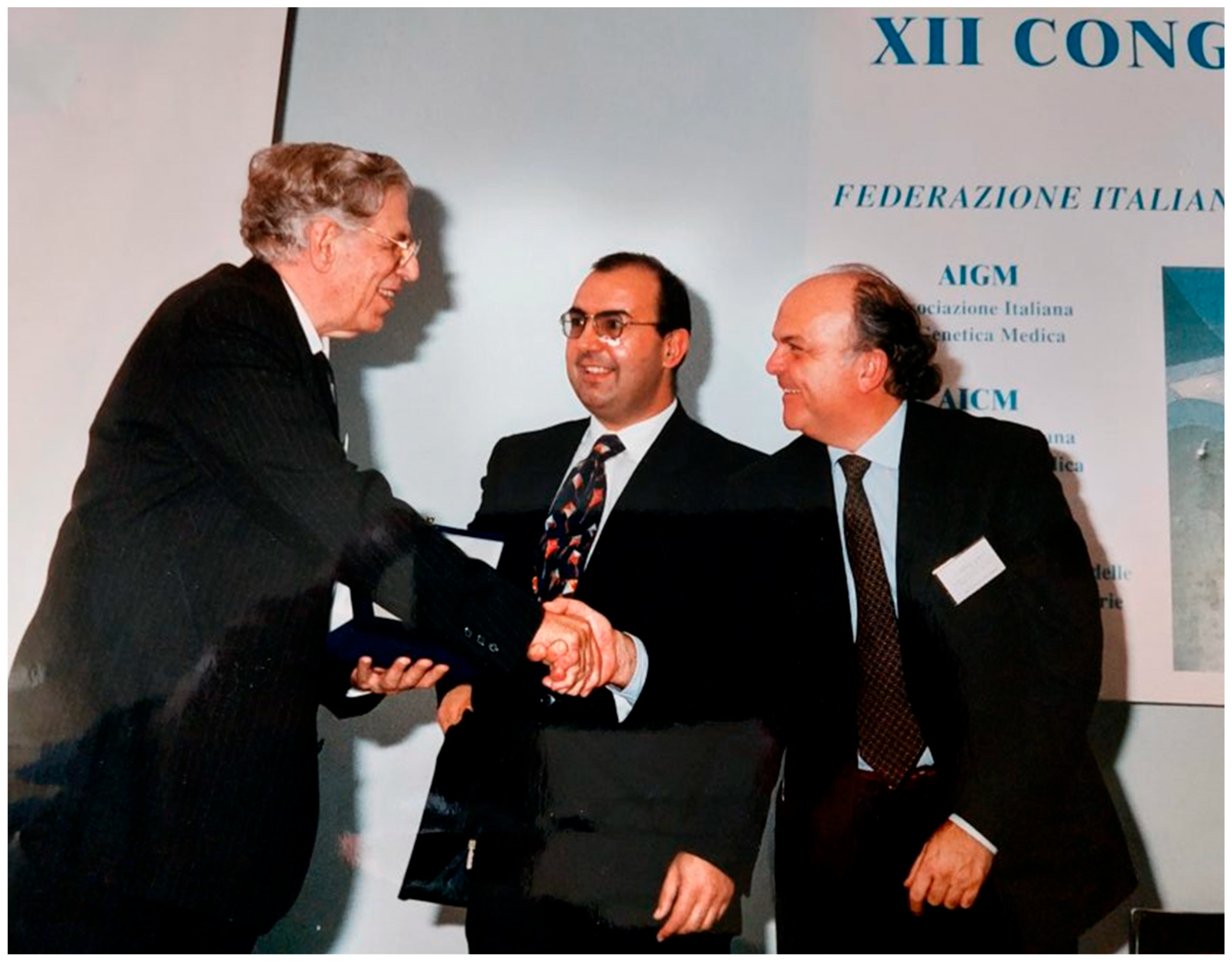Robert J. Gorlin: Personal Memory of a Friend and Mentor in Clinical Genetics
Author Contributions
Funding
Conflicts of Interest
References
- Donnai, D. Robert J. Gorlin, DDS, MS (1923–2006): A geneticist for all countries. J. Med. Genet. 2007, 44, 478–479. [Google Scholar]
- Cohen, M.M., Jr. Robert J. Gorlin, 1923–2006: A remembrance. Am. J. Med. Genet. Part A 2006, 10A, 2516–2520. [Google Scholar] [CrossRef] [PubMed]
- Gorlin, R.J.; Cohen, M.M., Jr.; Hennekam, R.C.M. Syndromes of the Head and Neck; Oxford University Press: New York, NY, USA, 2001. [Google Scholar]
- Gorlin, R.J.; Toriello, H.V.; Cohen, M.M., Jr. Hereditary Hearing Loss and Its Syndromes; Oxford University Press: New York, NY, USA, 1995. [Google Scholar]
- Opitz, J.M. Encomium: Robert J Gorlin. Am. J. Med. Genet. 1993, 46, 316. [Google Scholar] [CrossRef]
- Paget, J. The “Bradshawe” lecture on some rare and new diseases. Br. Med. J. 1882, 2, 1189–1193. [Google Scholar] [CrossRef] [PubMed][Green Version]

Disclaimer/Publisher’s Note: The statements, opinions and data contained in all publications are solely those of the individual author(s) and contributor(s) and not of MDPI and/or the editor(s). MDPI and/or the editor(s) disclaim responsibility for any injury to people or property resulting from any ideas, methods, instructions or products referred to in the content. |
© 2023 by the authors. Licensee MDPI, Basel, Switzerland. This article is an open access article distributed under the terms and conditions of the Creative Commons Attribution (CC BY) license (https://creativecommons.org/licenses/by/4.0/).
Share and Cite
Dallapiccola, B.; Mingarelli, R. Robert J. Gorlin: Personal Memory of a Friend and Mentor in Clinical Genetics. Audiol. Res. 2023, 13, 939-941. https://doi.org/10.3390/audiolres13060081
Dallapiccola B, Mingarelli R. Robert J. Gorlin: Personal Memory of a Friend and Mentor in Clinical Genetics. Audiology Research. 2023; 13(6):939-941. https://doi.org/10.3390/audiolres13060081
Chicago/Turabian StyleDallapiccola, Bruno, and Rita Mingarelli. 2023. "Robert J. Gorlin: Personal Memory of a Friend and Mentor in Clinical Genetics" Audiology Research 13, no. 6: 939-941. https://doi.org/10.3390/audiolres13060081
APA StyleDallapiccola, B., & Mingarelli, R. (2023). Robert J. Gorlin: Personal Memory of a Friend and Mentor in Clinical Genetics. Audiology Research, 13(6), 939-941. https://doi.org/10.3390/audiolres13060081




